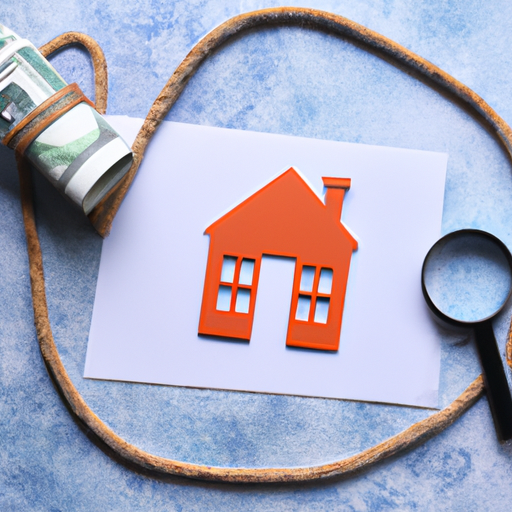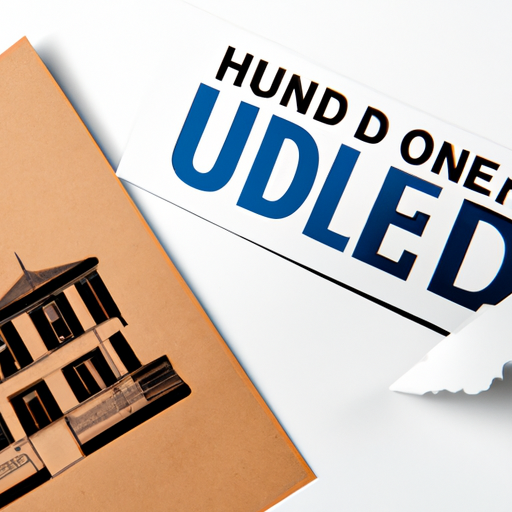When it comes to buying a home, there’s more to consider than just the purchase price. As you embark on this exciting journey, it’s important to be aware of the additional expenses that may arise along the way. From closing costs to ongoing maintenance and utilities, understanding these potential costs will help you navigate the home buying process with confidence and clarity. So, grab a cup of coffee, sit back, and let’s take a closer look at the expenses you should anticipate beyond the purchase price when buying a home.

1. Home Inspection and Appraisal
Purchasing a home is a significant investment, and it’s crucial to know what expenses you should anticipate beyond the purchase price. Two key components in the home buying process are home inspection and appraisal.
1.1. Home Inspection
A home inspection is an essential step in the home buying process. It involves hiring a professional home inspector to assess the overall condition of the property. The inspector will thoroughly examine the home’s structure, electrical system, plumbing, HVAC, and more. The purpose of a home inspection is to identify any potential issues or repairs that may need to be addressed.
While a home inspection may have a fee associated with it, it is a vital investment. It allows you to have a comprehensive understanding of the property’s condition, ensuring that you are making an informed decision. It’s recommended to hire a reputable and qualified home inspector who can provide a detailed report on the home’s condition.
1.2. Appraisal
An appraisal is typically required by the lender to determine the property’s value. A professional appraiser will assess various factors such as the location, size, condition, and comparable sales in the area to determine the fair market value of the home. The appraisal ensures that you are not overpaying for the property and provides the lender with confidence that they are lending an appropriate amount.
Appraisal fees can vary depending on the size and complexity of the property, but it is typically paid upfront during the mortgage process. It’s crucial to have a reliable appraiser who is knowledgeable about the local market and can provide an accurate assessment of the property’s value.
2. Down Payment and Closing Costs
When buying a home, there are two significant financial components to consider: the down payment and closing costs.
2.1. Down Payment
The down payment is the initial payment you make towards the purchase price of the home. The percentage required for a down payment can vary depending on the type of loan and the lender’s requirements. It’s crucial to have a clear understanding of your budget and financial capabilities to determine how much you can comfortably put towards a down payment.
A higher down payment can have several advantages, including a lower mortgage interest rate, reduced monthly mortgage payments, and potential savings on private mortgage insurance (PMI). It’s essential to work with a mortgage professional to explore different down payment options and find the best fit for your financial situation.
2.2. Closing Costs
In addition to the down payment, there are closing costs associated with purchasing a home. Closing costs are the fees and expenses incurred during the closing process, including lender fees, title insurance, attorney fees, appraisal fees, and more. These costs can vary significantly and typically range from 2% to 5% of the purchase price.
It’s essential to review the closing costs estimates provided by your lender and factor them into your budget. Some closing costs may be negotiable, so it’s worth shopping around and comparing quotes from different service providers. Understanding and preparing for these expenses will help ensure a smooth closing process.
3. Property Taxes and Insurance
Owning a home also comes with ongoing expenses such as property taxes and homeowners insurance.
3.1. Property Taxes
Property taxes are usually assessed annually by the local government and are based on the assessed value of the property. The amount you pay in property taxes can vary depending on the location and the value of your home. It’s important to research the property tax rates in the area you plan to purchase a home and factor them into your budget.
Property taxes are typically collected by the lender along with your monthly mortgage payment and held in an escrow account. The lender then pays the property taxes on your behalf when they are due. Reviewing your property tax assessment and understanding the tax rates can help you plan and budget accordingly.
3.2. Homeowners Insurance
Homeowners insurance is a crucial component of owning a home. It provides financial protection in case of damage to your property due to events like fire, theft, or natural disasters. The cost of homeowners insurance can vary depending on factors such as the location, the value of your home, and the coverage options you choose.
It’s essential to shop around for homeowners insurance and compare quotes from different insurance providers. Consider factors like coverage limits, deductibles, and additional coverage options. Having a comprehensive homeowners insurance policy will give you peace of mind and protect your investment in case of unforeseen events.
4. Homeowners Association Fees
If you are purchasing a property in a community governed by a homeowners association (HOA), you may be required to pay monthly or annual HOA fees. These fees cover the maintenance and upkeep of common areas, amenities, and community services.
HOA fees can vary depending on the community and the services provided. It’s important to review the HOA rules and regulations, as well as the fee structure, before purchasing a home. Understanding the HOA fees and any additional charges or special assessments is crucial for budgeting and ensuring you are comfortable with the financial obligations of the community.

5. Utilities
When budgeting for your new home, it’s important to consider the cost of utilities. These can include electricity, water and sewer, gas, and internet and cable services.
5.1. Electricity
The cost of electricity will depend on factors such as the size of your home, the number of occupants, and your energy usage habits. It’s advisable to contact the local utility company to get an estimate of the average monthly cost based on the property’s previous usage.
5.2. Water and Sewer
Water and sewer costs can vary depending on the location and the size of your property. Some areas have different billing structures, including flat fees or usage-based rates. Contacting the local utility provider will help you understand the anticipated monthly costs.
5.3. Gas
If your home uses gas for heating, cooking, or other appliances, you will need to budget for the cost of gas utilities. The expenses will depend on the size of your home, the number of gas appliances, and prevailing gas prices.
5.4. Internet and Cable
Internet and cable services are essential for many homeowners. It’s crucial to research the available providers in your area and compare the packages and prices they offer. Consider your internet usage needs and entertainment preferences when selecting a provider and package.
6. Maintenance and Repairs
As a homeowner, you are responsible for maintaining and repairing your property. Regular maintenance tasks such as lawn care, HVAC servicing, and gutter cleaning should be factored into your budget. Additionally, unforeseen repairs can occur, and having an emergency fund specifically for these expenses is advisable.
It’s important to stay proactive with maintenance to prevent more significant issues down the line. Creating a schedule and budget for maintenance and repairs will help you keep your home in good condition and avoid costly repairs in the future.
7. Furniture and Appliances
Moving into a new home often requires purchasing furniture and appliances. Depending on your needs and preferences, this can be a significant expense. It’s essential to plan and budget for these purchases to ensure a smooth transition into your new home. Consider shopping around for the best deals and explore options such as second-hand furniture or sales to save money.
8. Moving Expenses
Moving into a new home involves various expenses, including hiring movers, renting a moving truck, or purchasing packing supplies. These expenses can add up, especially if you are moving long distances or have a large amount of belongings. Researching and comparing quotes from different moving companies and planning ahead can help minimize these costs.
9. Renovations and Upgrades
If you plan to make renovations or upgrades to your new home, it’s important to include these expenses in your budget. Whether it’s a small cosmetic update or a significant renovation project, costs can vary depending on the scope of the work and the materials used. Researching contractors, obtaining multiple quotes, and setting aside a contingency fund for unexpected expenses are crucial steps when budgeting for renovations or upgrades.
10. Homeowners Association Special Assessments
In addition to regular HOA fees, homeowners associations may impose special assessments for unexpected expenses or major repairs within the community. These assessments are usually one-time payments and can occur in response to significant projects or unforeseen events. It’s important to review the HOA’s financial statements and consult with your real estate agent or HOA representative to understand the potential for special assessments and factor them into your budget.
By considering all these expenses beyond the purchase price, you can budget wisely and ensure a smooth financial transition into your new home. Planning ahead, comparing estimates, and staying informed will help you make informed decisions and enjoy your new home without any financial surprises.


